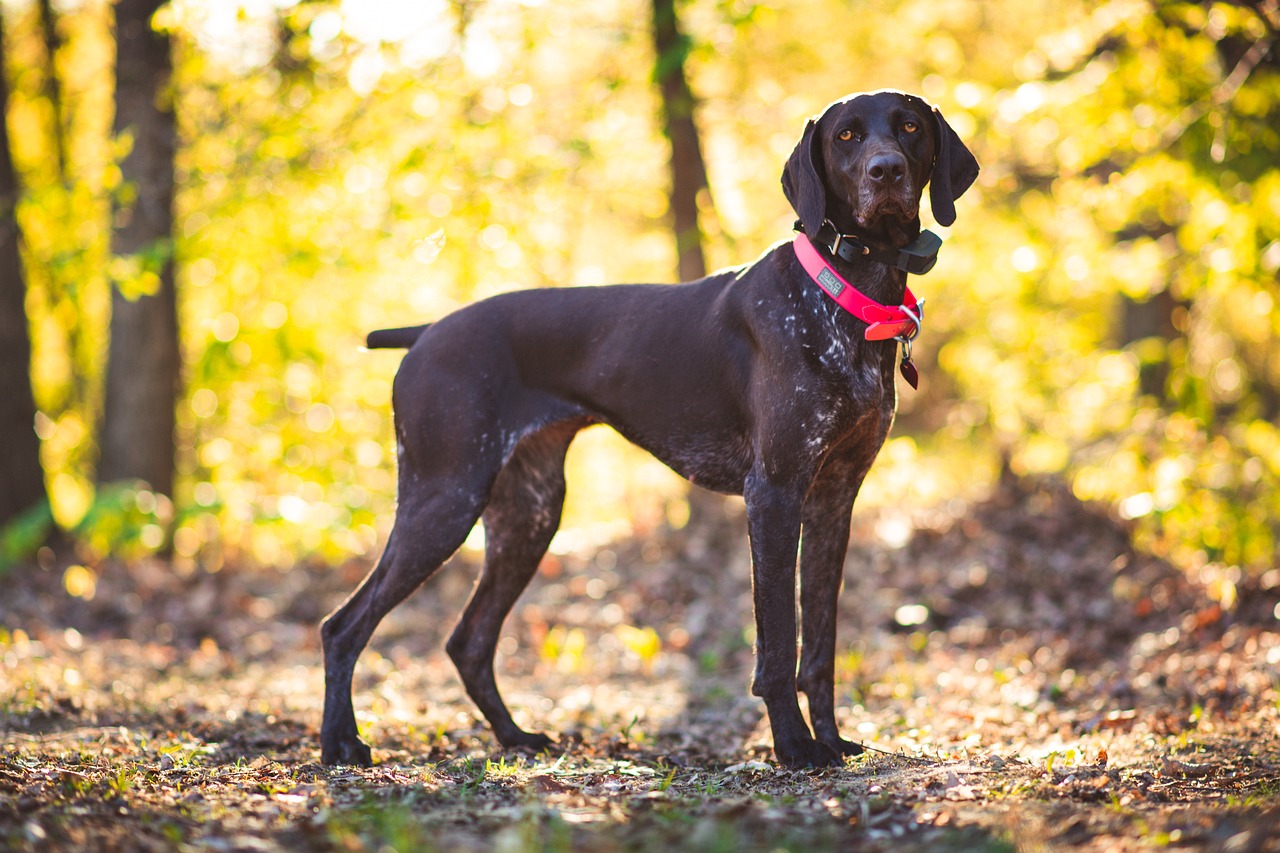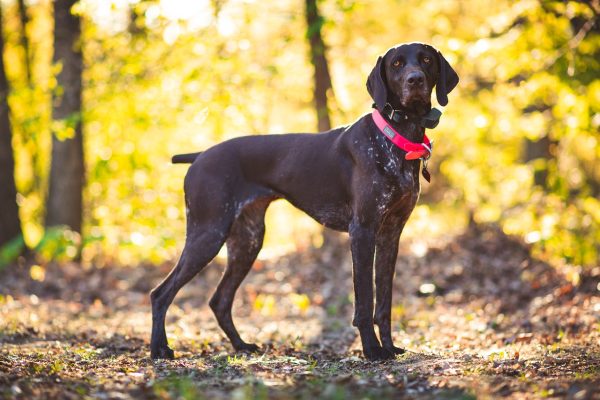Click Below to Skip Ahead
Also known by the catch-all name “gun dog” in the southern US, the English Pointer or Pointer is a muscular, dignified, and energetic high-performance canine athlete. They often have a retruding “dish face” with jowls resembling a Bulldog but with the sleek, lean body of a larger running dog and vividly understated coat colors like lemon or liver.
Breed Overview
Height:
23 to 28 inches
Weight:
45 to 75 pounds
Lifespan:
12 to 17 years
Colors:
Black, liver, liver-and-white, lemon-and-white, orange-and-white, black-and-white
Suitable for:
Active families with or without children, experienced dog owners
Temperament:
Charming, dignified, independent, smart, loyal
Pointers have a tail-wagging happy-go-lucky personality and love to please their family, though they display an independent streak sometimes. There is a lot more that goes into this breed though. Let’s look into what makes this beloved dog breed tick down below.
Pointer Characteristics

Pointer Dog Puppies
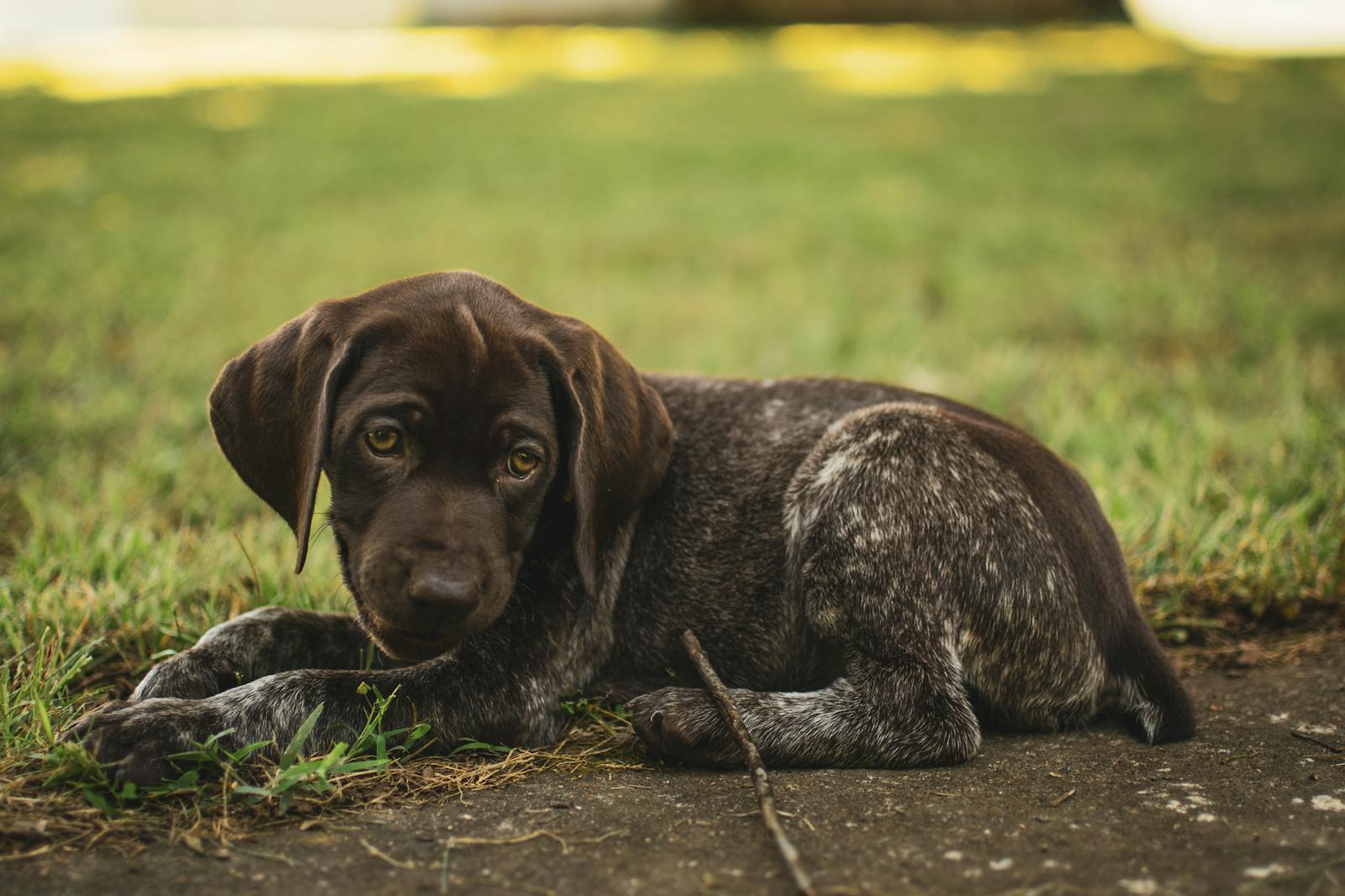
Pointers are popular hunting dogs but underrepresented as a family dog, so breeders may be scarce. Thankfully, the American Pointer Club has an extensive page where you can find accredited breeders and learn more about the breed. If you don’t have luck there, the AKC’s adoption marketplace is another great resource to connect with reputable breeders. Social media groups devoted to the Pointer can help you meet owners of the breed but are more hit-and-miss when it comes to networking to meet a breeder.
Pointers are frequently crossed with other dogs to produce a better hunting dog. This means it’s even more important you read up on how to tell a good breeder from a bad one that might try to sell you a crossbreed advertised as a Pointer.
Tips for Finding a Reputable & Quality Pointer Breeder:
- Vet the breeder: Look online for a website, reviews, and references for breeders before you consider visiting them. If there’s little or no info available, that’s a red flag.
- Meet the breeder: You should always go to a breeder’s facilities to ensure their dogs are kept in spacious, loving, and clean environments. Shady breeders will avoid visitors and try to meet in public instead.
- Assess the parents: If either parent or both parents are on-site, make sure to meet them for a peek at how your puppy may look and act when they grow up.
- Get a clean bill of health: Good breeders have health screenings done and are upfront about potential breed-related health problems your puppy may face later in life.
- Ask questions: Knowledgeable breeders are passionate about their breed and are happy to answer any and all questions related to their breed’s care, health, and quirks.
Pointer Breed Origin and History
Historians aren’t certain where Pointers came from, but most agree they came from the Old Spanish Pointers imported to England from Spain in the 17th century. Since then, the Pointer’s been bred a lot to improve their hunting skills. Their varied ancestry makes them relatives of Setters, Bloodhounds, Spaniels, and Retrievers.
Temperament & Intelligence of the Pointer 🧠
Pointers are highly active dogs that might make you assume they’re high-strung, but that’s not the case at all! They’re secretly good-natured and amiable dogs with a mild aloofness. Pointers are charismatic, easygoing pups who really just want to accompany you everywhere you go. They have a stubborn, almost independent edge on occasion, but they’re far from pigheaded. They’re just good boys and girls that want to play the big, lanky shadow at your heels.
Pointers can be a little exuberant but never mean any harm by it, and in fact, are happy to go with the flow as long as you show that’s the right thing to do. Even-tempered to the end, Pointers are an adaptable if energetic dog that happily finds their niche in any family they join. Beware the odd stubborn Pointer, as their easily distractible personality and keen nose can get them into a lot of trouble on their own.
Are These Dogs Good for Families? 🏡
A lot of Pointers are bred to be hunting dogs, but they can make equally great family companions as well. Active, charming, loyal, and face-lickingly loving, the Pointer is remarkably tolerant toward smaller kids but still needs supervision around them. They’re inclined to follow your lead and can even make fast friends with relative strangers quickly. They’re not the most vocal when it comes to alerting you to intruders, but they’re still a great dog for any family.
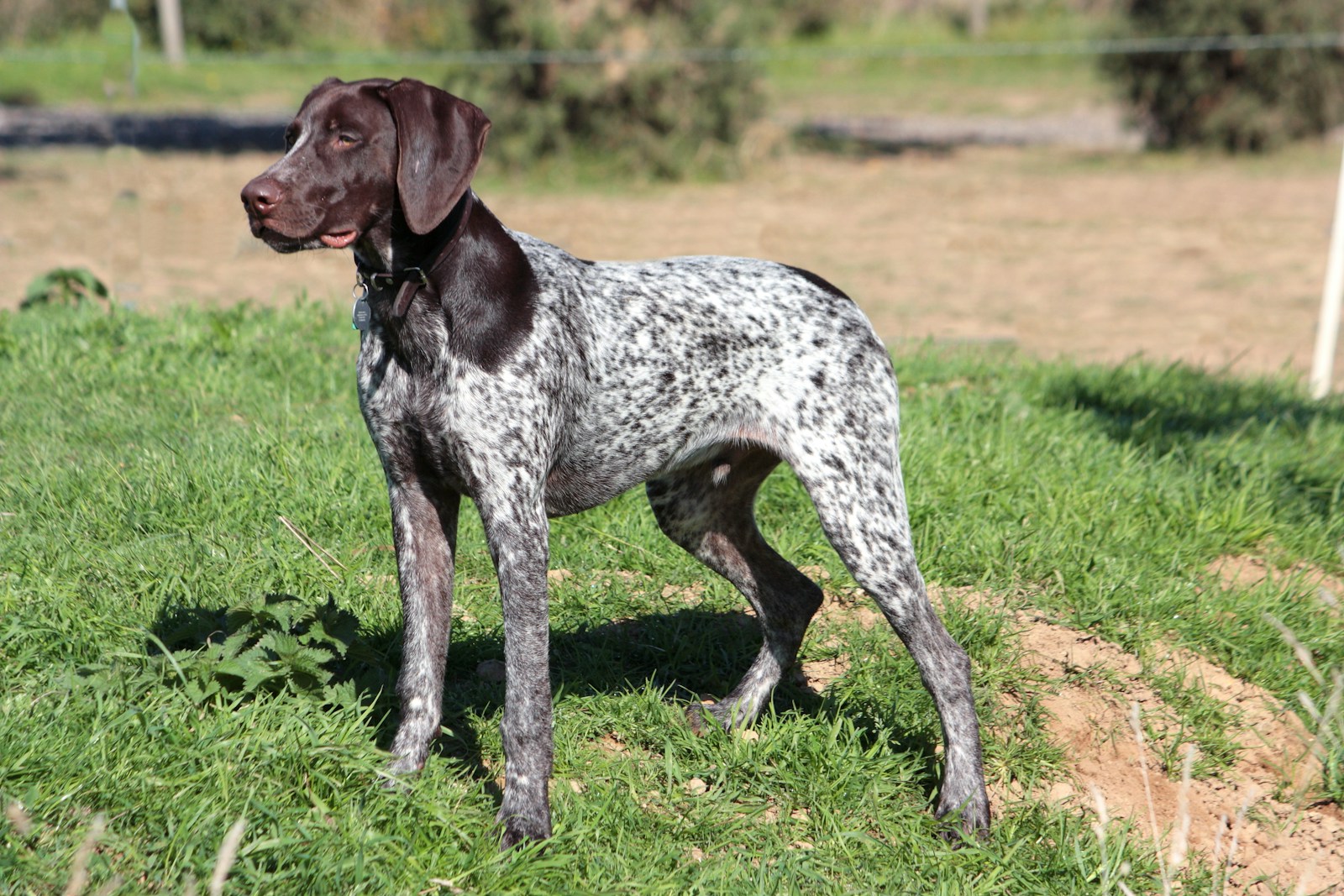
Does This Breed Get Along With Other Pets? 🐶 😽
Yes, Pointers are sociable dogs that get along with other dogs and even cats when they’ve been raised and socialized properly. They can be a little high-energy, so make sure your dogs are compatible in that respect or your lower-energy dog could find themselves with a personal dog trainer! Birds and smaller prey pets like guinea pigs are an absolute no-go due to the Pointer’s strong chasing instinct.

Things to Know When Owning a Pointer
Food & Diet Requirements 🦴
Active dogs like the Pointer demand high-quality nutrition to fuel their doggy marathons, keep them in healthy condition, and to stave off disease. A complete and balanced dog food appropriate for your Pointer’s age will provide all the protein, carbs, healthy fats, vitamins, and other trace nutrients they need. Puppy Pointers need a higher protein puppy food with 30% to 32% protein. Active adult Pointers should get no less than 24% to 26%, which is a bit more than the average breed. Ask your vet about specific foods if you’re concerned or have questions.
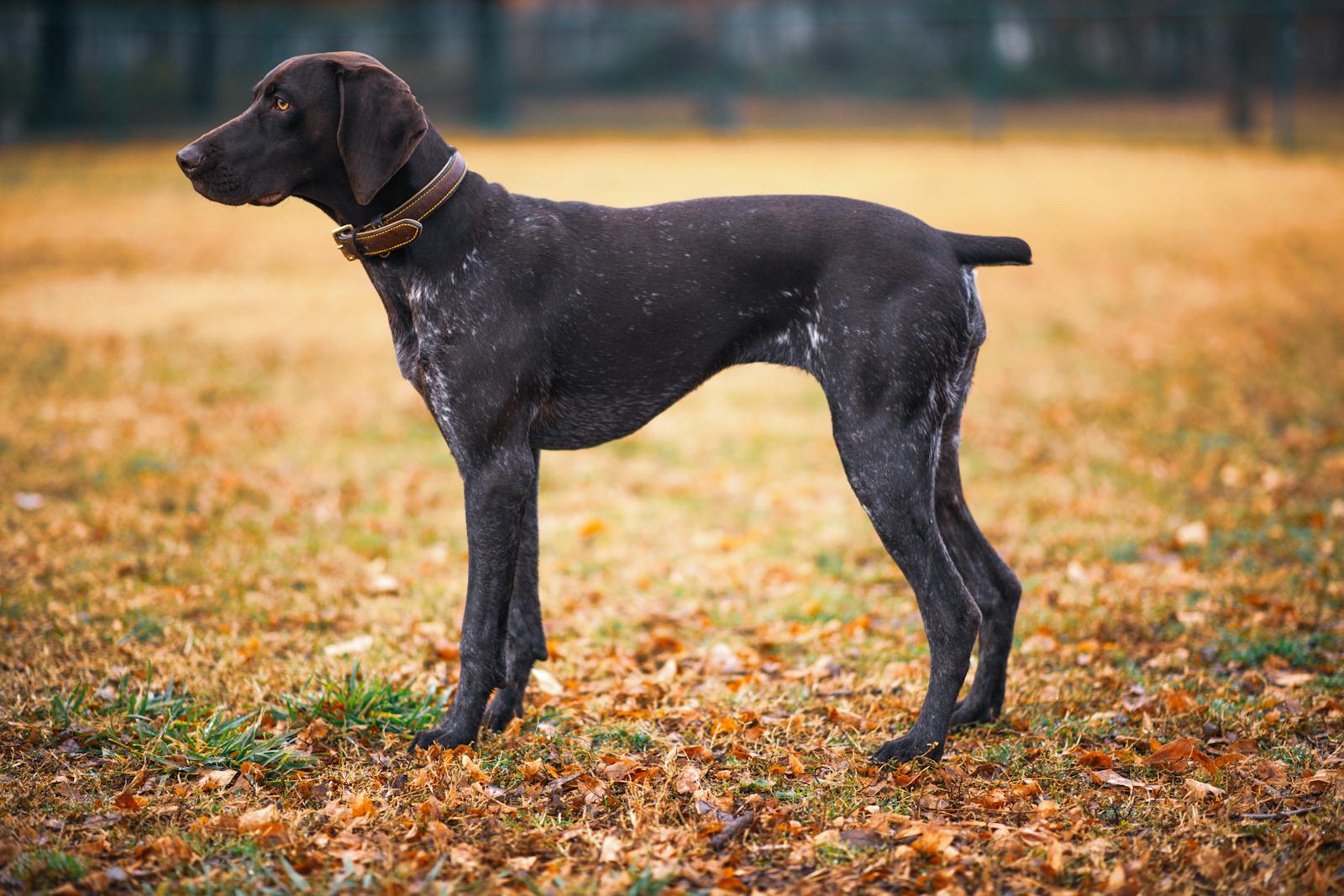
Exercise 🐕
As you might expect, Pointers need a lot of exercise. Two hours a day split up between walks, jogs, playtime, and training sessions should be enough, but it depends on the dog. We recommend enrolling your Pointer in at least one dog sport or activity to help them get their crazies out. They excel at flyball and agility courses, so consider letting your dog give them a try.
Like other highly active breeds, we strongly recommend a sizable secure yard for your Pointer to play and blow off steam when you can’t go out on a walk. However, a yard alone is not exercise by itself! If your dog isn’t getting enough exercise and/or mental stimulation, they will let you know. The chewed-up shoes and chasms in your yard will be the clues, so get ahead of the game by tuckering your Pointer out before they get frustrated.
Training 🦮
Pointers are usually easy to train due to their strong work ethic and eagerness to please, but sometimes they can be shockingly stubborn during training. Whether your dog is learning to hunt or not, a foundation of positive reinforcement should be laid early on. Start from as early as when you name your Pointer. Call them by their name, ignoring the times they don’t respond, and wait for them to come. When they do, celebrate like it’s their birthday with ample praise and a high-value treat.
We can’t understate how much this helps later on as long as you approach positive reinforcement with consistency and patience. When they have clearly defined boundaries, rewards, and expectations, the Pointer makes a point of smashing all your goals. Getting there can be tricky if they display a stubborn streak, but again, patience will help you out-stubborn your dog and get their training back on track.
Grooming ✂️
The Pointer’s coat is short, dense, and pleasantly resistant to getting dirty. They don’t shed much, so a weekly session with a rubber brush should get the bulk of their dead hair off and keep their coat sleek and healthy. Baths should be every 2 months or as needed since they don’t really need it if they’re not visibly dirty. For such a high-energy dog, Pointers are delightfully low-maintenance when it comes to grooming.
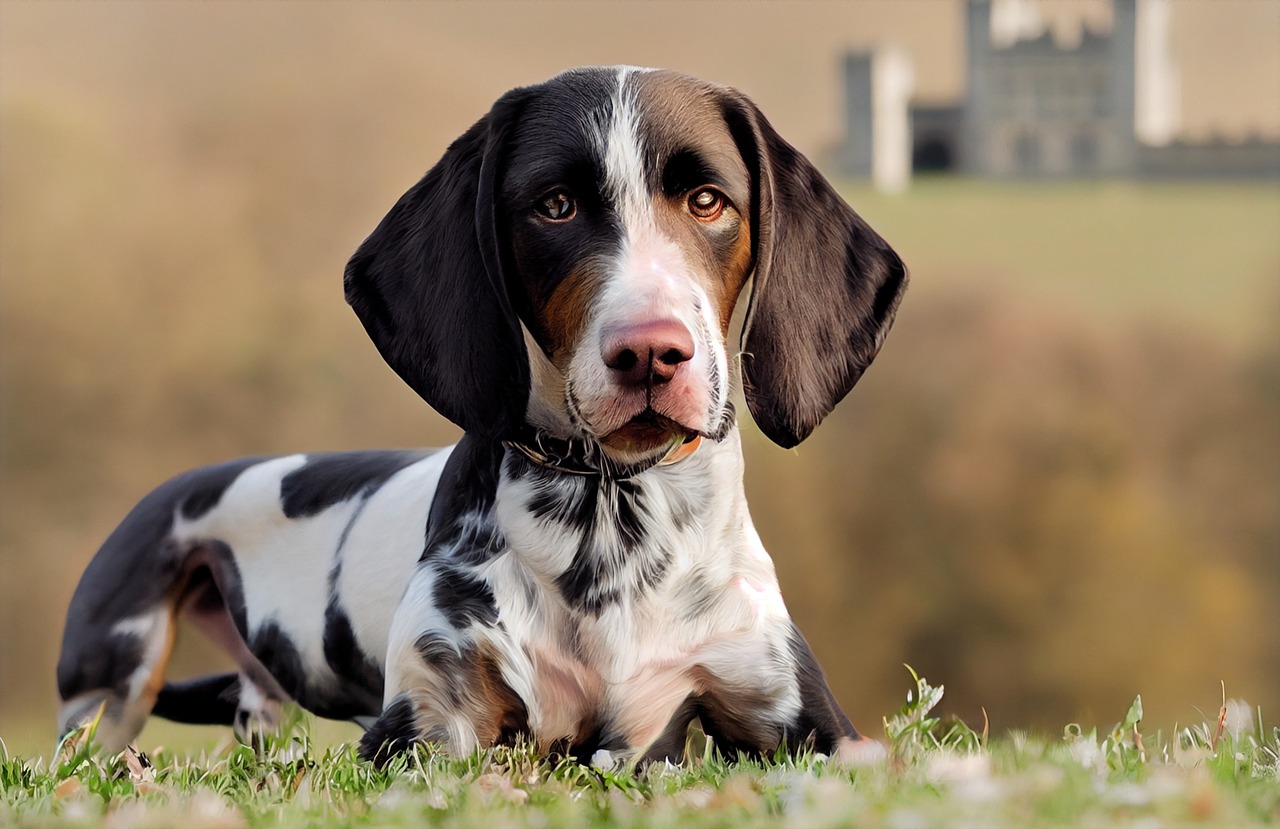
Health and Conditions ❤️
Pointers are a healthy breed that lives 12 years or more and usually don’t face major health problems when properly screened by hard-working breeders. However, health screenings aren’t perfect and sometimes problems occur anyway. Thankfully, these are typically minor or preventable health issues – check out the most common ones in Pointers below.
- Dysplasia
- Skin conditions
- Bloat
Minor Conditions:
- Dysplasia: Too much strenuous exercise during adolescence can cause dysplasia in the hip or elbow joints, and it is more common in highly active breeds like the Pointer.
- Skin conditions: Pointers are more likely to develop allergies and dermatitis, as these can cause flaky, dry skin, redness, and more.
Serious Conditions:
- Bloat: Deep-chested dogs like Pointers and especially those that eat too fast are more at risk of this life-threatening condition where the stomach fills with gas and twists.
Male vs. Female
Physically, male Pointers grow larger but slower than females. Males grow up to 23 to 25 inches in height and 55 to 70 pounds, while females cap out smaller at 21 to 23 inches tall and 45 to 55 pounds. Females are known to grow and mature faster, which helps make them more amenable to training while males are still rowdy teenagers.

3 Little-Known Facts About the Pointer
1. They’re Pointing Specialists
As their name suggests, the Pointer was mainly bred to freeze or point in the direction of game birds, and their great endurance helped them chase down even the flightiest birds. Today, Pointers are versatile hunters that can retrieve or flush as well as point, but they’re by far most famous for their natural ability to point.
2. They Have a Lot of Relatives
Unlike some breeds that require strict rules about no crossbreeding, the Pointer has been frequently crossed with other dog breeds to produce more desirable traits for hunting. Today, their lineage makes them related to Setters, Bloodhounds, Foxhounds, Spaniels, and possibly even Bulldogs!
3. Pointers Might Be Roman
Writings from storytellers like Pliny the Elder suggest the Pointer’s ancestors were once imported to Rome—yes, that Rome. These anecdotes are supported throughout documented history, which regularly mentioned other European countries importing hunting dogs from the Iberian Peninsula where modern-day Spain is situated.
Final Thoughts
Pointers might be most well-known as talented hunters, but their chipper pluck and gentle spirit make them perfect companions for active families with or without kids. They take a lot of exercise to stay in shape but otherwise are far more low-maintenance pups than you’d expect.
Featured Image Credit: brixiv, Pixabay

